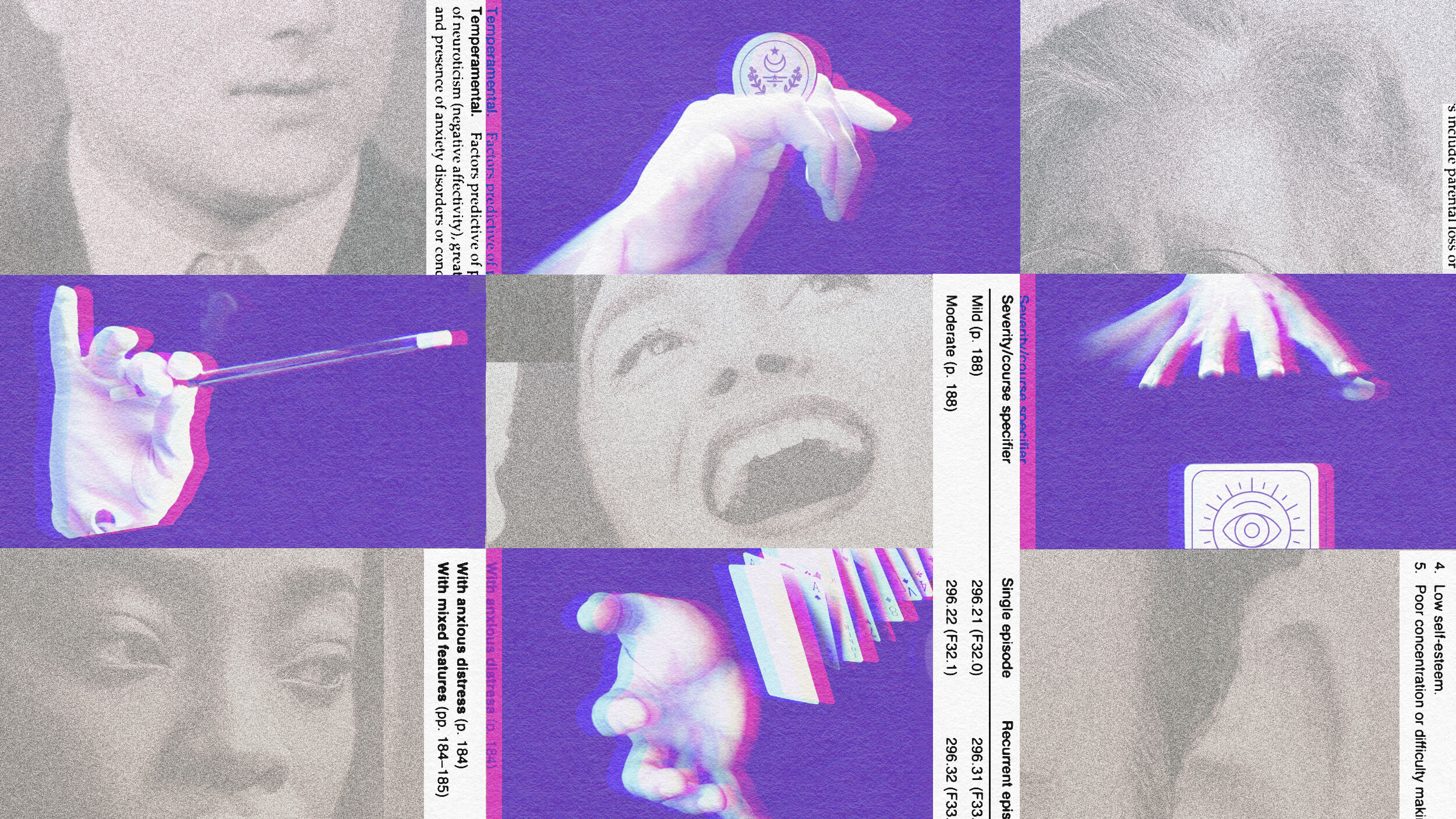Derren Brown returns to the stage with his new live, one-man show, Showman. Check it out here.
DERREN BROWN: Magic is a great analogy for how we process the world, generally. So, we have this infinite data source coming at us, there's an infinite number of things that we can think about, but we essentially make up a story about what we're seeing. We edit and delete and we form a narrative and we mistake that narrative for the truth. The way you watch a magic trick of any sort and edit your experience to form a story that brings you to a point of going "oh my god that's impossible" is what we do every day in real life, and we have to because it's our only way of navigating forward. But it's important to remember sometimes that it is just a story that there's a lot of stuff going on that we're not aware of. And, of course, a magician doing a trick is exploiting exactly that process the fact that we are master editors.
So I am encouraging a form of skepticism, but I do think that the broad easy skepticism of the magician or the atheist, I'm an atheist, but I think that both of those camps have it too easy. So, there are things I think that are important skeptically and then there's also important checks on the very nature of skepticism. Particularly in the world of people making claims, grand claims, which is what I, as somebody rooted in magic come across a lot. An important point that I guess goes back to Hume, which is that extraordinary claims demand extraordinary evidence. So, if somebody is making a grand claim, a supernatural claim, for example, it's going to be up to them to come up with equally strong and impressive and grand evidence for that thing. As opposed to it's up to the other person, say you, to disapprove it, which is often what they say, well you can't disprove it. If I say I've got a green mouse living in my house and I expect you to believe that, it's not your job to prove that I don't have a green mouse by looking in every corner of my house because you could always miss the mouse, it's up to me to show you it. If I'm going to show you a photograph of it it has got to be a proper picture not a doctored picture and so on. So, what you have a lot of is evidence that isn't real evidence.
So, for example, a psychic medium using say her very demonstration of doing it as proof of psychic mediumship, well that's no more valid than if a magician saws a woman in half and says "well here's proof that I'm doing it. Look I'm sawing her in half." Well, that's not proof. Proof would be okay do it with my saw, do it with my box, do it with my woman as opposed to your assistant, and do it under some kind of controlled conditions and then maybe I'll believe it. You create conditions that everyone agrees on and then it becomes evidence. I think that just in terms of understanding not getting too caught up in other people's stories and other people's narratives and falling for them, that reserve of skepticism is important. And when it's your job to disprove and when it isn't that's important, particularly in a world full of charlatans and people trying to get us to believe what they want. But it's very difficult because it's very hard to know what information sources to trust, and that's just part of the world we live in now and it's dizzying and depressing knowing where you can start. But at least you can do your best, you can try and work authentically by spotting your own biases and understanding as much as you can the biases of others.
Where I think skepticism, in its broad modern popular sense of just don't believe in God, don't believe in this, don't believe in that, where I think it has its limits, and I speak very much as a skeptic myself and as an atheist as I said, where it is important to realize the edges of its usefulness is where those things that may not be objectively true but can be psychologically "true," in other words psychologically resonant to the path of living and what we take in life and what's important to us and what's helpful. So that's what you don't want to throw out, you don't want to throw out that baby with the bathwater. So, in religion for example, those things that are easily knocked down if you're an atheist, they're easy to kind of make fun of and disapprove, those things are also they're kind of often are strawman to knock down but they can often be pointers back to something that is psychologically useful. They're signifiers of something. If you take what happens with religion is that you have something that happens, an experience of transcendence or a kind of thing that happened historically, nothing magical or supernatural but just for people at that time a connection to a sense of the transcendent whatever that was, a message or something and then as that moves out of living memory to recreate it a bunch of practices and dogmas and things are formed to try and recreate that feeling. And that becomes now a thing of belief rather than a sort of knowledge that it was at the time. And then to sustain and protect that belief an institution is sort of created and developed and becomes politicized and powerful and monetized and all of those things and then it moves into a world where we are nowadays where things have to be sort of proved with evidence so it starts to try and come up with evidential arguments that somehow never quite really work. So, you do end up with a thing that's easy to knock down, but that can miss the fact that there's something at the heart of it, which maybe is useful. Maybe those narratives around religion are useful to us psychologically, maybe they have an archetypal or a mythological use that it would be a shame to dismiss because we feel the absence of those things.
It's the very fact we turn to psychics and fortune tellers and become terrified and lonely around death. Those things happen because we've lost touch with some of those myths and some of those more resonant narratives. So, I am I think being a little skeptical about skepticism itself and the easy narratives that it forms is also I think very useful.






